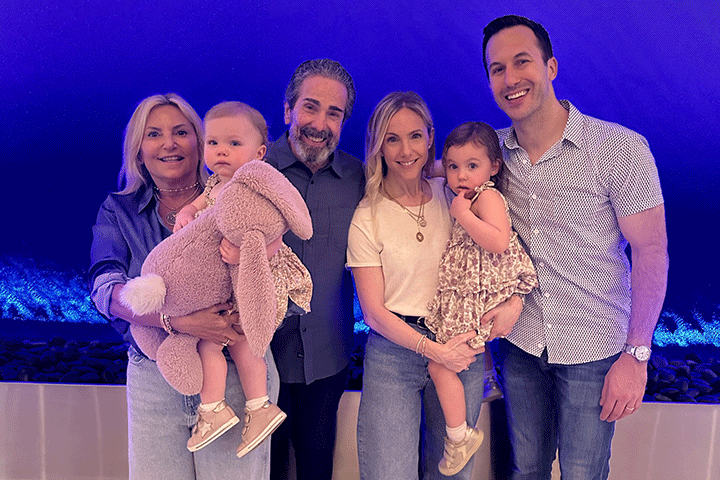Platform Trial Increases Efficiency in Studying Immunotherapy

When people talk about the next big thing in cancer treatment, immunotherapy is bound to be at the top of the list.
After years of limited success, researchers are now poised to hone in on those immunotherapy treatments that may hold the most benefit to select groups of patients. For example, scientists are combining cancer vaccines—one form of immunotherapy—with other forms of immunotherapy, to better kick-start the immune system into recognizing and killing cancer cells.
A case in point is a study led by researchers from the Johns Hopkins Sidney Kimmel Cancer Center, the Bloomberg~Kimmel Institute for Cancer Immunotherapy, and the Johns Hopkins University School of Medicine (Baltimore, Maryland). In this study, patients with operable pancreatic cancer were treated with a three-pronged immunotherapy approach.
The three agents used were the pancreatic cancer vaccine GVAX, the immune checkpoint therapy nivolumab, and an anti-CD137 agonist antibody treatment called urelumab. The purpose of the study, which was published June 2023 in the journal Nature Communications, was to determine whether this combination is safe as well as effective in increasing the number of cancer-fighting T cells in tumors and also effective when given two weeks prior to surgery. This study is the latest from an ongoing platform trial launched in 2016 to study immunotherapy treatments for pancreatic patients before and after surgery.
Why a Platform Study?
Platform trials, sometimes referred to as multistage or multiarm trials, evaluate several interventions against a common control group. These trials can also be perpetual. This platform approach enables researchers to use data generated by the trial to advance development of immunotherapies for pancreatic cancer within the same study and allows for rapid and efficient clinical assessment of potential interventions.
“The (platform) study has a lot of advantages in studying immunotherapies,” explains study co-author Elizabeth Jaffee, M.D., professor of oncology and deputy director of the Johns Hopkins Kimmel Cancer Center. “One of the most important is that we don’t need large numbers of patients to find the best immunotherapy combinations that may lead to better outcomes for more patients. That kind of efficiency in trial design is important in all cancers, but especially in pancreatic cancer.”
The study, which is almost a decade old, began with one drug and then pivoted to a two-drug combination. From that work, the researchers learned the immune system became “active,” but it was necessary to add a third drug to “supercharge” the active immune cells to cause cancer killing, Jaffee explains. “This (three-combination) study is very promising, but it’s still early,” she adds.
How the Study Works
The open-label pilot platform study enrolled patients with pancreatic ductal adenocarcinoma who were slated to undergo surgery to remove the tumor at Johns Hopkins Hospital. Participants also needed to have no known second malignancies within five years of a diagnosis of pancreatic cancer, an ECOG performance status of 0 or 1, and no serious autoimmune disease requiring treatment with systemic corticosteroids.
In the three-arm, phase II trial, patients received the GVAX vaccine plus low-dose cyclophosphamide (arm A), GVAX, cyclophosphamide, and nivolumab (arm B), or GVAX, cyclophosphamide, nivolumab, and urelumab (arm C).
At the May 25, 2022, data cutoff, patients in arm C displayed significantly increased levels of killer T cells (CD8+) and immune modulators (CD137+) within the tumor, compared with patients in arm A and arm B. Current evidence suggests that in mono or combo therapies for cancer, anti-CD137 antibodies increase antitumor immune response because they can activate or regulate immune subsets in the tumor microenvironment.
Of the 10 participants in arm C, the median disease-free survival—the amount of time after treatment during which no cancer is found—was 33.51 months, and the median overall survival—time to death—was 35.5 months. These were higher than found in previous arms of the trial that tested the pancreatic cancer vaccine alone and in combination with just nivolumab. Based on this data, the team is developing a larger study.
Investigators noted that in October 2020, the remaining supply of urelumab expired, and three patients who remained on treatment in arm C transitioned to the arm B regimen. In a larger trial, the team will be using a new anti-CD137 agonist that has been re-engineered to reduce liver toxicity.
Gaining Insight
Incredible strides have been made during the last several decades in the understanding of cancer and the immune response. “Research has given us better insight into the genetic drivers behind potentially life-threatening cancers and technology has changed dramatically, especially molecular technology,” Jaffee says. “We now have faster and less expensive genetic sequencing, and that means we can use treatments targeting the mutation that’s driving the cancer. We now know that pancreatic cancer has a minimal natural immune response.”
For example, in another study which was part of the ongoing platform trial, the team studied two forms of treatment known to stimulate the body’s T cells to attack cancer cells, alone or in combination. The treatments included an anti-PD-1 immunotherapy, which blocks an immune checkpoint that cancer cells use to turn off the immune response to cancer, unharnessing an immune response to the cancer. The other immunotherapy studied was GVAX.
The study, published in the journal Cancer Cell, found two major “defects” in the pancreatic cancer’s tumor microenvironments. One is that T cells are exhausted and still not sufficiently active, and the second is that myeloid cells that infiltrate the tumor’s microenvironment prevent T cells from activating against pancreatic cancer cells, even after treatment with GVAX and anti-PD-1 immunotherapy. This finding revealed the cause of tumor cell resistance to immunotherapy and resulted in new treatment strategies.
Jaffee is confident that progress will indeed be made in pancreatic cancer and other cancers that don’t naturally respond well to immunotherapy. While that may be in the future, she also emphasizes there are treatments available currently to select groups of patients that may improve survival. “It is so important for patients to have their tumors molecularly profiled,” she says. “No two tumors are alike. And there are treatments like PARP inhibitors and other targeted approaches that may be able to help a patient today.”






